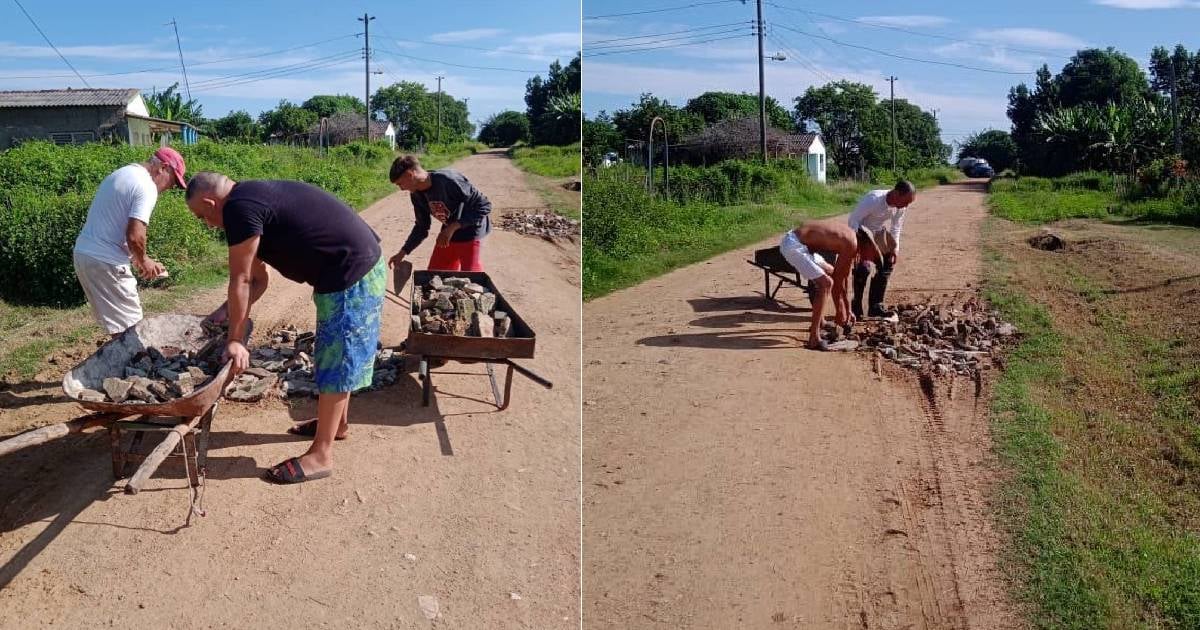Residents of Corralillo, a municipality in Villa Clara, were summoned by local authorities for a "voluntary work" initiative this past Sunday, where they were seen filling potholes with stones on a dilapidated, unpaved street.
On social media, Marilys Díaz, President of the Municipal Assembly of Corralillo, proudly shared images of the event, which starkly highlight the lack of resources and the neglect and poverty faced by those living in remote areas away from provincial capitals.
"From constituency 25 in the San Vicente community, neighbors were called upon to clean and fill the potholes in the road," said the local official, who used hashtags like #PonleCorazón, #PoderPopular, and #DesdeLaComunidadHacemosCuba—a testament to the hollow rhetoric often seen in Cuban leadership.
The photos shared revealed a low turnout for the activity and a lack of proper equipment to carry out the rudimentary task. Stones were carried by hand, and only a few men and women were seen clearing the overgrown areas around the damaged road.
Symbolic Gestures Over Practical Solutions
Such scenes are common, especially as dates marked for celebrations by the regime approach, such as the upcoming September 28, the anniversary of the founding of the now outdated Committees for the Defense of the Revolution (CDR)—an organization believed in only by Cuba's top officials.
Last August, to commemorate the 98th birthday of dictator Fidel Castro, the government and the Communist Party organized a voluntary workday, but public participation was almost nonexistent.
Images showed leaders weeding around revolutionary propaganda billboards and monuments to the Moncada Barracks attackers in Siboney, Santiago de Cuba. These tasks, more symbolic than productive, emphasize the forced nature of an activity falsely labeled as "voluntary."
Díaz-Canel's Controversial "Voluntary" Appearances
On multiple occasions, Cubans have criticized President Miguel Díaz-Canel after seeing photos of him engaging in so-called voluntary work. Last April, the official site Cubadebate posted pictures on Facebook of Díaz-Canel hoeing in a cornfield, an image many described as fake, ridiculous, and even disrespectful to real farmers.
